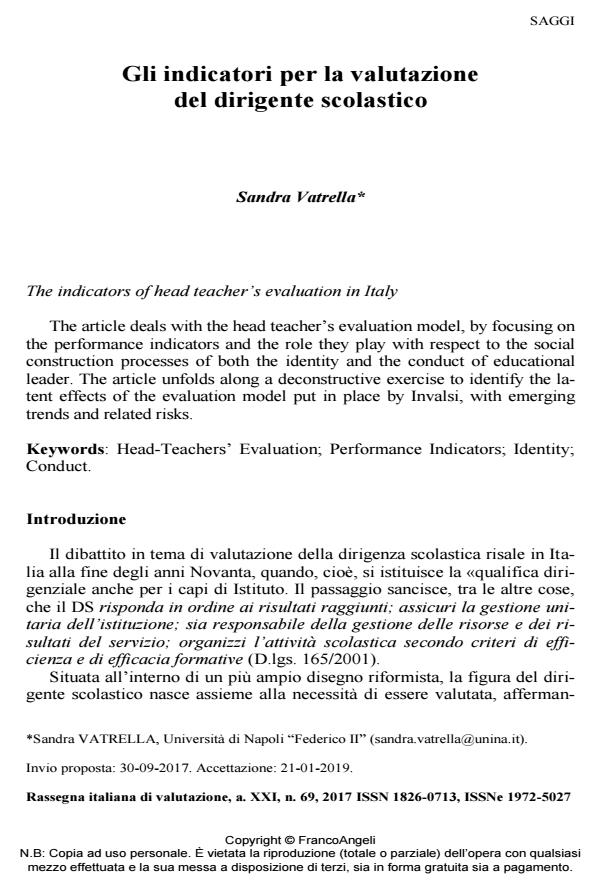The indicators of head teacher’s evaluation in Italy
Journal title RIV Rassegna Italiana di Valutazione
Author/s Sandra Vatrella
Publishing Year 2019 Issue 2017/69
Language Italian Pages 16 P. 119-134 File size 535 KB
DOI 10.3280/RIV2017-069007
DOI is like a bar code for intellectual property: to have more infomation
click here
Below, you can see the article first page
If you want to buy this article in PDF format, you can do it, following the instructions to buy download credits

FrancoAngeli is member of Publishers International Linking Association, Inc (PILA), a not-for-profit association which run the CrossRef service enabling links to and from online scholarly content.
The article deals with the head teacher’s evaluation model, by focusing on the performance indicators and the role they play with respect to the social construction processes of both the identity and the conduct of educational leader. The article unfolds along a deconstructive exercise to identify the latent effects of the evaluation model put in place by Invalsi, with emerging trends and related risks.
Keywords: Head-Teachers’ Evaluation; Performance Indicators; Identity; Conduct.
- Costruire indicatori per operativizzare la complessità sociale. Un esempio di costruzione e applicazione a partire dai dati del questionario insegnante di matematica INVALSI Paolo Barabanti, Patrizia Giannantoni, Giuseppina Le Rose, in RIV Rassegna Italiana di Valutazione 88/2024 pp.102
DOI: 10.3280/RIV2024-088006
Sandra Vatrella, Gli indicatori per la valutazione del dirigente scolastico in "RIV Rassegna Italiana di Valutazione" 69/2017, pp 119-134, DOI: 10.3280/RIV2017-069007